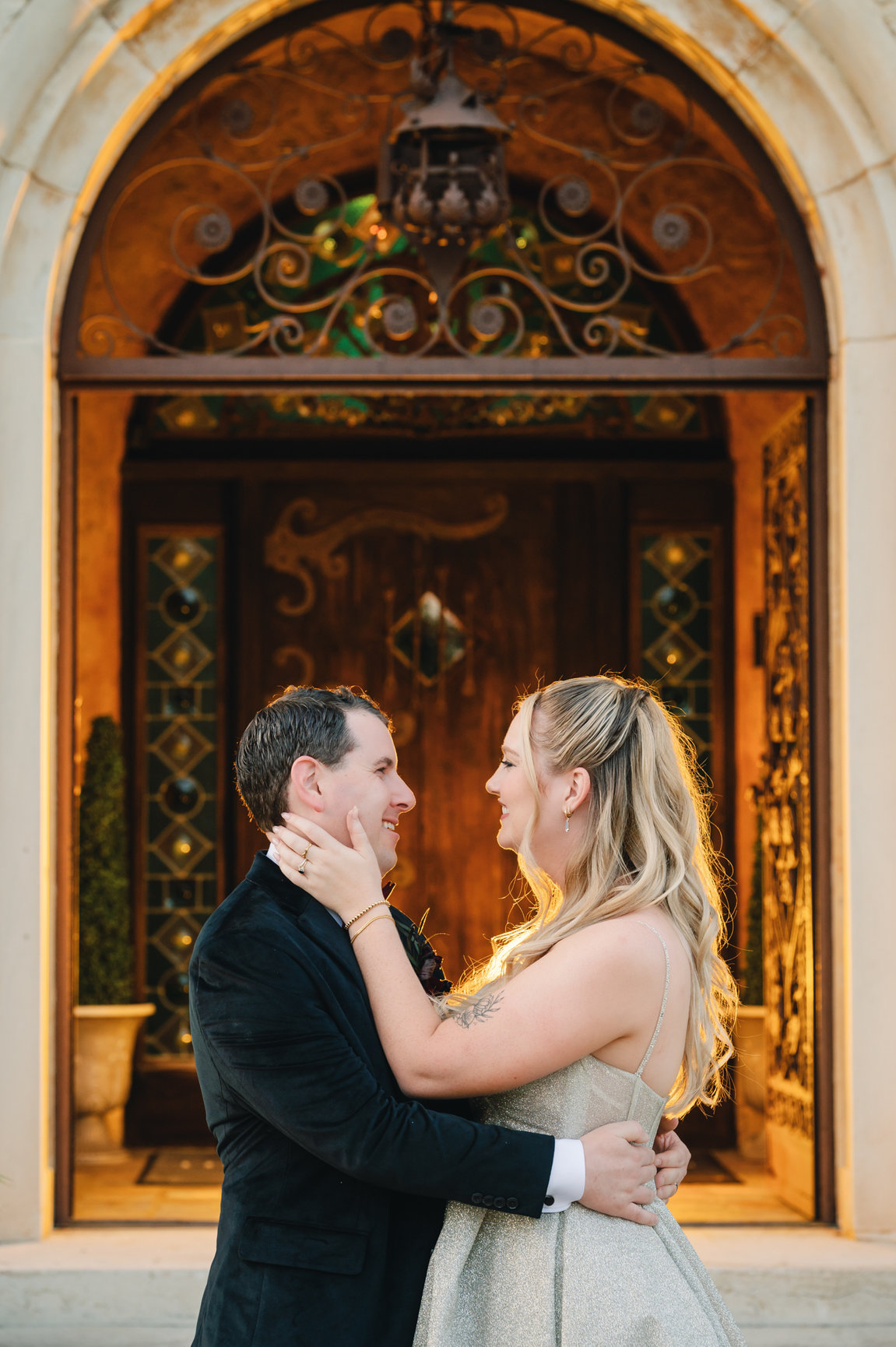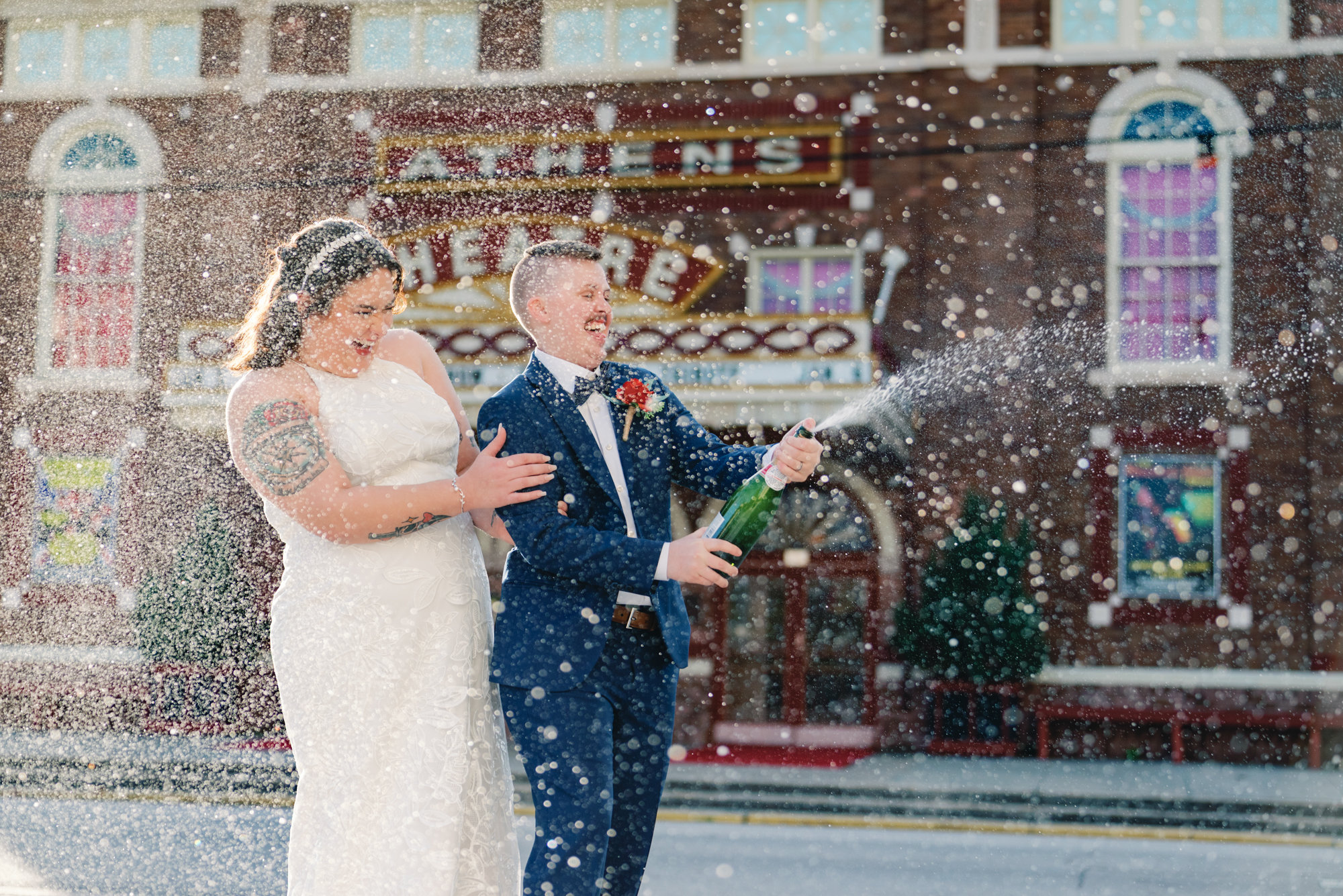Best. Day. Ever.
Recent Wedding Blog Posts
Reach out to us for more info!
Thank you for contacting us!
We have received your message and will contact you shortly
Weddings are a beautiful celebration of love and commitment, and they vary greatly across different cultures, religions, and communities. Each type of wedding has its unique traditions, rituals, and customs, making it a special and meaningful experience for the couple and their families. Below is a detailed look at various types of weddings:
• Christian Weddings
Christian weddings are typically held in a church and are officiated by a pastor or priest. The ceremony includes Bible readings, hymns, and prayers, with a focus on the couple’s commitment to God and each other. The exchange of vows and rings is a central part of the ceremony, symbolizing the couple's promises to one another. Christian weddings often conclude with the pronouncement of the couple as husband and wife, followed by a reception.
• Catholic Weddings
Catholic weddings are a type of Christian wedding but with specific rituals and traditions unique to the Catholic faith. They often take place during a Mass, known as the "Nuptial Mass," which includes the Eucharist (Holy Communion). The couple must usually undergo pre-marital counseling with the priest, known as Pre-Cana. The ceremony includes specific prayers, readings, and blessings, and the couple often participates in the lighting of a unity candle or the presentation of flowers to the Virgin Mary.
• Jewish Weddings
Jewish weddings are rich in tradition and symbolism, with rituals that date back thousands of years. The ceremony typically takes place under a chuppah (a canopy that represents the couple's future home) and is officiated by a rabbi. Key elements include the ketubah (marriage contract) signing, the exchange of rings, and the Sheva Brachot (seven blessings). The ceremony often ends with the groom breaking a glass underfoot, symbolizing the fragility of life and the destruction of the Temple in Jerusalem.
• Indian Weddings
Indian weddings are known for their vibrant colors, elaborate rituals, and multi-day celebrations. Depending on the region and religion (Hindu, Sikh, Muslim, etc.), the customs can vary significantly. A Hindu wedding, for example, often includes the Saptapadi (seven steps around a sacred fire) and the Mangalsutra (a necklace tied around the bride's neck by the groom). Indian weddings are typically very festive, with music, dancing, and traditional attire like sarees and turbans.
• Muslim Weddings
Muslim weddings, or Nikah, are solemn and spiritual ceremonies that follow Islamic traditions. The Nikah ceremony includes the recitation of Quranic verses and the signing of a marriage contract. The couple may also exchange vows, although this is not always required. A key aspect of Muslim weddings is the Mahr (a gift from the groom to the bride). The celebration often continues with a Walima, a reception hosted by the groom’s family.
• Chinese Weddings
Chinese weddings are steeped in tradition, with many customs designed to bring good luck and prosperity to the couple. A typical Chinese wedding includes a tea ceremony, where the couple serves tea to their elders as a sign of respect. The bride often wears a red qipao or cheongsam, symbolizing good fortune. The wedding banquet is a significant part of the celebration, featuring multiple courses, toasts, and entertainment. Traditional elements like lion dances and firecrackers may also be included.
• Korean Weddings
Korean weddings combine traditional elements with modern practices. The traditional Korean wedding ceremony, or Paebaek, involves the couple wearing hanbok (traditional Korean attire) and bowing to their elders. The couple may also perform rituals like tossing chestnuts and dates, symbolizing their hopes for many children. Modern Korean weddings often include a Western-style ceremony followed by the Paebaek. Korean weddings are known for their respect for family and heritage.
• Greek Weddings
Greek Orthodox weddings are rich in symbolism and tradition, beginning with the Service of Betrothal, where rings are exchanged, followed by the Service of the Crowning, during which crowns are placed on the couple’s heads to symbolize their new union. The couple is then led around the altar in the ceremonial Dance of Isaiah. Key traditions include the crowning, which honors the couple, and the role of the Koumbaro or Koumbara, who assists in the ceremony. The bride typically wears a white gown with a veil, and the church is adorned with icons, candles, and flowers, with the ceremony accompanied by chanting and hymns.
• Non-Denominational / Secular Weddings
Non-denominational weddings are not tied to any specific religion or faith, allowing for a great deal of flexibility in the ceremony. Couples can create a personalized ceremony that reflects their values and beliefs. These weddings may include elements from different traditions, such as the exchange of vows and rings, readings, and unity rituals like sand ceremonies or handfasting. The focus is often on the couple's commitment to each other rather than religious or cultural rituals.
• Pagan Weddings
Pagan weddings, also known as handfastings, are spiritual ceremonies rooted in nature and ancient traditions. They are often officiated by a celebrant or priestess and can take place outdoors, in locations that hold special significance to the couple. A key ritual in a pagan wedding is the handfasting, where the couple’s hands are bound together with a cord, symbolizing their union. The ceremony may also include the casting of a circle, invoking the elements, and making offerings to deities.
• LGBTQ+ Weddings
LGBTQ+ weddings celebrate the love and commitment of same-sex and gender-diverse couples. These weddings can be as diverse and unique as the couples themselves, often incorporating elements from various cultures, religions, and traditions. LGBTQ+ weddings may include traditional rituals like exchanging vows and rings, or they might feature custom ceremonies that reflect the couple's journey and values. These weddings are a celebration of love, equality, and the right to marry the person one loves.
• Interfaith Weddings
Interfaith weddings involve couples from different religious backgrounds, blending traditions and customs from both faiths. These ceremonies can be complex, as they require the couple to navigate and respect the beliefs of both families. An interfaith wedding might include elements like a Jewish chuppah and a Christian blessing, or a Hindu fire ritual alongside Muslim prayers. The key to a successful interfaith wedding is finding common ground and creating a ceremony that honors both traditions.
• Destination Weddings
While not a cultural or religious category, destination weddings are a popular choice for couples looking to combine their wedding with a memorable location. These weddings can incorporate local customs and traditions, depending on the destination. For example, a beach wedding in Hawaii might include a lei exchange and traditional Hawaiian music, while a wedding in Italy could feature a Catholic ceremony in a historic church.
• Civil Weddings
Civil weddings are non-religious ceremonies officiated by a legal representative, such as a judge or a civil registrar. These ceremonies are often straightforward and focus on the legal aspect of marriage. However, couples can personalize their civil wedding with readings, vows, and music to make the ceremony more meaningful. Civil weddings are an excellent option for couples who prefer a simple, non-religious ceremony.
• Military Weddings
Military weddings are a special type of ceremony for members of the armed forces. These weddings often include unique traditions, such as the Arch of Sabres (a sword or saber arch that the couple passes under) and the wearing of military uniforms. The ceremony may also include readings and rituals specific to the military branch, honoring the couple’s service and commitment to their country.
• Traditional and Cultural Weddings
In addition to the specific types of weddings listed above, many couples choose to have a wedding that honors their cultural heritage. These weddings can include a wide range of traditions, from African-American jumping the broom to Scottish kilted ceremonies and Irish Claddagh rings. Cultural weddings are a way to celebrate and preserve the customs and values passed down through generations.
Each type of wedding is a unique reflection of the couple's background, beliefs, and love story. Whether rooted in religion, culture, or personal choice, weddings are a universal celebration of love and commitment, bringing people together in joy and unity.






